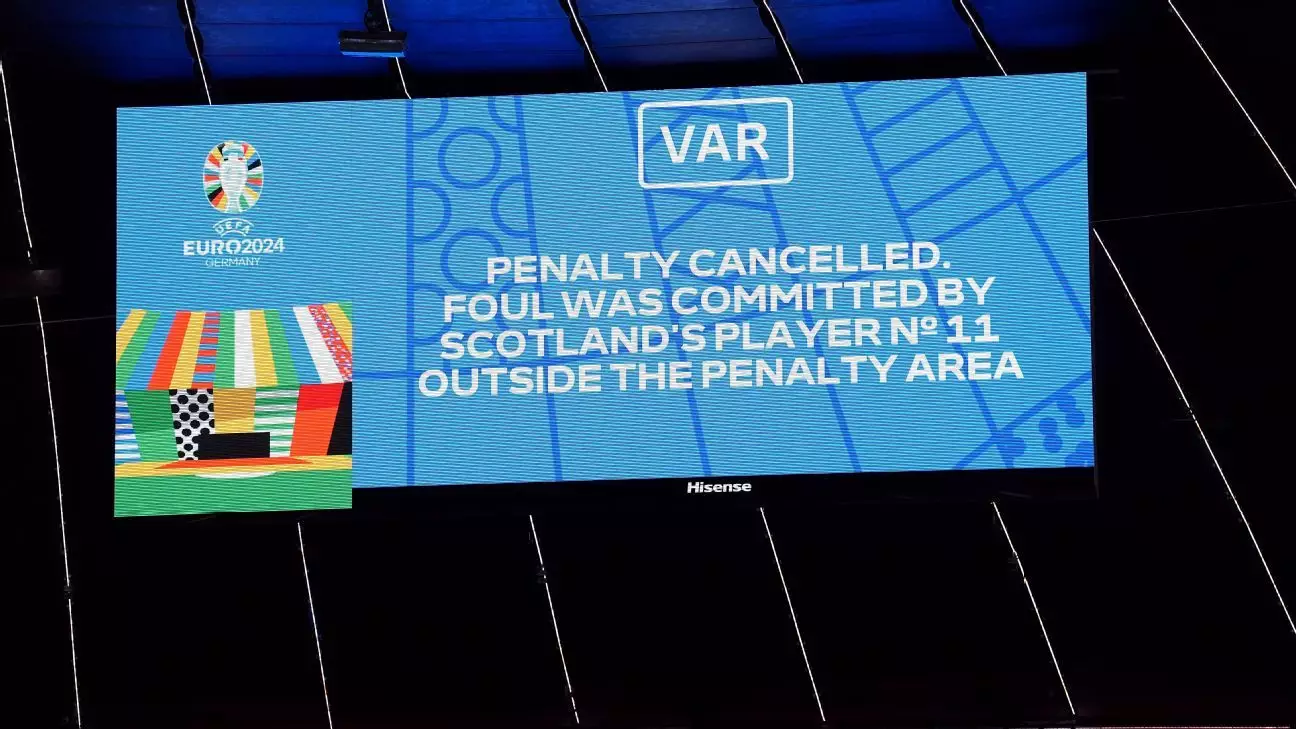The world of football is on the brink of transformation as the International Football Association Board (IFAB) has taken a pivotal step towards diversifying the technological tools available for officiating the game. This time, the focus is on the recently sanctioned expansion of trials for Football Video Support (FVS), an innovative alternative to the traditional Video Assistant Referee (VAR) system. This article delves into the mechanics and implications of FVS, especially in its ability to empower coaches, the potential ramifications for the game, and the contrasts with existing VAR systems.
Football Video Support, or FVS, is a unique approach that addresses some of the shortcomings of current video review systems. Unlike conventional VAR, which operates under a system where designated officials control the video assistant review process, FVS allows coaches to challenge specific decisions on the pitch. This provides a more interactive and engaging form of officiating, where the pace of the match can potentially remain consistent. Given its recent trials during the U20 and U17 FIFA Women’s World Cups, it delivers a first glimpse of how this method could function in various leagues around the world.
One critical aspect of FVS is its cost-effectiveness. Designed for leagues with fewer resources and typically featuring a limited number of cameras—ideally four or five—FVS presents a feasible alternative for lower-tier competitions. This bridge between amateur and professional levels not only broadens the accessibility of video assistance but also addresses logistical challenges that associations face when implementing a full VAR system.
The ability for coaches to challenge decisions transforms the conventional dynamic of power on the pitch. With FVS, each coach is permitted to put forth up to two challenges per match, significantly changing how decisions are made. This innovation aims to curtail errors that can affect the outcomes of games while keeping refereeing grounded in the human elements that define the sport.
Pierluigi Collina, FIFA’s referees’ committee chairman, has emphasized the necessity of managing expectations concerning FVS and its limitations. While the effectiveness of VAR stems from a comprehensive review involving multiple camera angles and instant replay technology, FVS must operate within a narrower framework. Tactical decision-making becomes crucial, as coaches must carefully consider when and how to challenge an on-field ruling.
Limitations and Challenges of FVS
Despite promising developments, FVS is not without its limitations. The lack of multiple camera angles means that only clear and obvious errors can be rectified; nuanced offsides or other subtle infringements could remain unaddressed as referees may miss them without proper evidence. Additionally, the role of the match referee is significantly different in the FVS system compared to VAR. While VAR officials provide insights on potential errors, FVS relies solely on the referee’s judgment after viewing footage, making the human element more prominent.
Moreover, the design of FVS to cater specifically to leagues with fewer resources presents a challenge. The assumption that these leagues can effectively implement such technology without substantial support raises questions about its feasibility in practice. Notably, the varied environments found in competitions like the Women’s Super League could hinder its broader application.
The discussions surrounding FVS are part of a larger landscape of efforts aimed at refining football officiating. During IFAB’s Annual General Meeting, additional trials targeting various aspects of the game were reviewed, from limitations on players discussing decisions with referees to exploring the potential of semi-automated offside technology. Each initiative aims to enhance the sporting experience for players and fans alike, while maintaining the integrity of the game.
As the footballing community prepares for further trials, including those that address goalkeeper behavior and public transparency during VAR reviews, it is clear that the evolution of technological support is just beginning. FVS may represent a significant shift in how soccer is officiated, ideally leading to fairer contests and empowerment of all participants involved on the pitch.
The introduction of Football Video Support signifies exciting possibilities for soccer, changing the refereeing landscape and inviting more engagement from coaches. By understanding its strengths and limitations, stakeholders can better navigate the future of the beautiful game, ensuring that technological advancements continue to enhance rather than complicate the sport.


Leave a Reply